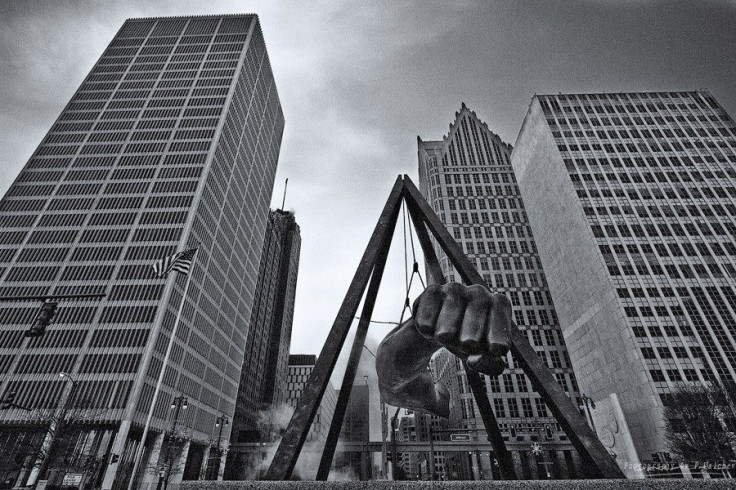
"Let me be blunt: Detroit's broke," said Michigan Gov. Rick Snyder. It's official: Detroit declared bankruptcy on Thursday, becoming the largest American city to file for Chapter 9.
Four months ago, Washington bankruptcy expert Kevyn Orr was tasked to become Detroit's emergency financial manager to save it from fiscal ruin. However, as Detroit's debts are at a staggering $18 billion, 38 cents of every city dollar goes to debt repayment and unfunded liabilities. By 2017, the figure is expected to rise to 65 cents of every city dollar. It is ultimately an impossible mission.
On Tuesday, Orr sent a letter to Governor Snyder, revealing Detroit had no alternative but to file for Chapter 9. Orr explained that Detroit's collapse is down to fiscal mismanagement, plummeting population, decaying infrastructure and failing services.
At its peak, Detroit was the fourth largest city of the United States. However, population loss began in the 1960s as families began to move to the suburbs. Later, foreign vehicles caused the American automobile industry to shrink and the middle class workforce came down with the city.
Now, the city of Detroit is virtually a ghost town with thousands of abandoned buildings with acres of neglected lots. During the automotive boom, Detroit boasted a population nearing two million. Today, the city only has about 700,000 residents.
However, the Detroit bankruptcy cannot be blamed on the fall of the American auto industry alone. Recent city politicians and civic leaders have betrayed the city as well.
Former Detroit Mayor Kwame Kilpatrick (2002-2008) conducted bribes out of City Hall and rigged contracts worth millions of dollars for a friend's excavating company.What's more, IRS agents conducted an investigation that revealed Kilpatrick had spent $840,000 beyond his mayoral salary.
In March, Kilpatrick was convicted of 24 charges, including racketeering conspiracy. Fundraiser Emma Bell testified against Kilpatrick, admitting that she gave the former mayer $200,000 in political donations and even pulled cash from under her bra during private meetings. Kilpatrick awaits sentencing.
Detroit crime isn't found only at the top. In fact, Detroit is ranked among the nation's 10 most violent cities for 24 of the last 27 years. Statistics reveal that the average Detroit police response time is 58 minutes, compared to a national average of 11 minutes. What's more, only 8.7% of all criminal cases are cleared.
Detroits bankruptcy is also due to the city's inability to attract foreign investors who cannot overlook the city's ills.
"That's not a sustainable situation," said Governor Snyder. Snyder hopes Chapter 9 will bring an "opportunity for a fresh start" for Detroit and for the state of Michigan, whose fortunes depend on the fate of its biggest city.
"For Michigan to be a great state, Detroit needs to be a great city," he said.
Despite the challenges that Detroit faces, Senator Carl Levin (D-Mich.) offered his encouragement: "I know deep in my heart that the people of Detroit will face this latest challenge with the same determination that we have always shown."
"This is certainly one of the greatest challenges Detroit has faced in its long history," Fellow Michigan Democrat, Senator Debbie Stabenow continued. "The people of Michigan's largest city have met and overcome tremendous challenges in the past. There are so many positive things happening across the city, and I have every confidence that Detroit will emerge even stronger and more resilient."
The bankruptcy of General Motors and Chrysler during the nation's recession was arguably the strongest impact to Detroit in recent years. Thankfully, restructuring and new management has allowed sales to rebound strongly for both automakers. However, a significant benefit to the two company's current financial health is down to leaner, more efficient, operation.
Chrysler Chief Executive Sergio Marchionne believes that the city of Detroit's reversal will depend on the reopening of factories and the rebirth of Detroit industry. In March, Marchionne discussed Chrysler's reinvestment in Detroit:
"You've got to invest in plants and businesses in the area to effectively cause the repopulation of your residential areas, and people that live close to the plant live here, and effectively start rebuilding this city as a viable community. ... The more people who do this, the better Detroit ultimately will be," Marchionne said.




